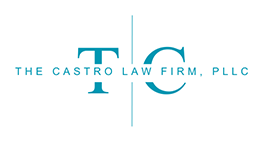Let A Compassionate Lawyer Take The Burden Of Probate Off Of You
The loss of a loved one is extremely difficult and is made worse by trying to handle the logistics of the probate process on your own. An experienced probate attorney can assist you and guide you through the process and take the burden off your shoulders. There are several probate administrations in Florida, but the most common are summary and formal.
Attorney Taren L. Castro handles probate and ancillary probate for people in Royal Palm Beach and the Treasure Coast area. She understands that this is a tough time for your family and she will work hard to manage the probate process for you. You can rest assured that she will make sure your loved one’s wishes are followed and the legalities are handled correctly. Learn more in a free consultation today.
Testate Succession
If the deceased person died leaving a properly executed last will and testament, that will dictate who the personal representative is, how assets are disbursed and who the beneficiaries are. The original last will and testament will have to be submitted to the circuit court to determine if it is a validly executed will.
Contesting Last Will And Testament
A party who wishes to contest a will must file a motion in the court where the probate proceeding was commenced. A will can be contested for numerous reasons including incapacity and undue influence. According to Fla. Stat. 732.501, a person making a will must be of sound mind, meaning they have testamentary capacity. The testator must know the extent of their property, the testator’s relation to those who would naturally claim a substantial benefit from the will and understand the practical effect of making a will. Pursuant to Fla. Stat. 732.5165, a will is void if procured by undue influence.
To prove undue influence, the party contesting the will must prove (1) the accused is a beneficiary in the will; (2) the accused and testator had a confidential relationship; and (3) the accused was active in procuring the will.
Intestate Succession
If a decedent died leaving no last will and testament, then Fla. Stat. 732.101 – 732.111 will dictate how their estate is handled. The order beneficiaries stand to inherit is as follows: surviving spouse (so long as decedent did not leave children who were not the children of the surviving spouse), if decedent left children who were not the children of the surviving spouse then the surviving spouse takes 50% and the remaining 50% is split equally between the children who are not the children of the surviving spouse; if no surviving spouse, then the estate is split equally among all children; if there is no surviving spouse and no surviving children then the estate passes to lineal ascendants (parents, grandparents, great-grandparents, etc.) and collateral relatives (siblings, aunts, uncles, etc.).
If none of the above heirs survive, then the estate passes to the heirs of the decedent’s grandparents, equally, with one half of the estate going to the decedent’s maternal relatives and one half going to the decedent’s paternal relatives. If none exist, then the estate escheats to the state of Florida.
Summary Administration
According to Fla. Stat. 735.201, in order to file a summary administration, the value of the estate cannot exceed $75,000 or the date of death must be over two years. A summary administration is typically filed in the county where the decedent was domiciled at the time of death. Certain property is exempt from this threshold, such as homestead real property. In this type of administration, there is no personal representative appointed.
The process itself can be shorter and the costs are less than with a formal administration. It is typically used for smaller estates. At the end of a summary administration, the court will issue an order. If the decedent’s creditors object, a formal administration might be necessary. Those who receive assets in this kind of administration may be liable for claims against the decedent for two years after the date of death.
Formal Administration
A formal administration is also typically filed in the county where the decedent was domiciled at the time of death. All estates, regardless of value, are eligible for formal administration. However, formal administration is required when the value of the estate exceeds $75,000 and less than two years have passed since the date of death. A personal representative will be appointed by the court to oversee and manage the estate during the probate proceeding. A notice to creditors has to be published for a specific period of time.
Once the estate is administered, the personal representative has to file an accounting with the court. At the end of the process, the personal representative will file a petition for discharge, which includes a plan for final distribution of the estate’s assets. The court will then issue an order and the probate proceeding will be closed.
Retain An Experienced Probate Attorney
If you lost a loved one and are trying to navigate and understand how the probate process works, The Castro Law Firm, PLLC, can help you. Please call 855-998-7570 to schedule your free consultation. You can send an email if you prefer. Hablamos Español.

